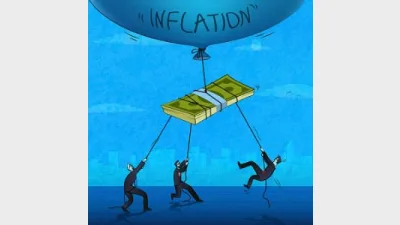The necessity of recessions



A recession in the US is likely next year, according to JPMAM’s Kerry Craig, but could work positively, akin to a forest fire, by clearing out excess in markets.
Speaking to Money Management, Craig, global market strategist at JPMAM, said he expected to see a mild recession in the US next year.
“It is likely to be a mild recession rather than a deep recession like the Global Financial Crisis but not until next year. There are no major factors which make us think it will be a big recession. Consumer confidence stands out and the PMIs indicate a retraction is coming.”
However, he said much like forest fires could have positive effects in rejuvenating forests of dead wood, recessions could help reduce excess in markets and free up capital.
“A recession can be necessary to free up capital to use elsewhere and clear out excesses, the same way that a forest fire clears the debris. If it’s a mild recession, the market shouldn’t see serious drawdowns.”
This was likely to also affect the Eurozone but not Australia as the country was in a better position as a result of high savings rate, strong household balance sheets and being in the early stages of the re-opening.
He said the central banks all around the world had done a poor job at forecasting the guidance lately as they had been hit by successive waves of problems, some which they were unable to control such as the supply chain crisis.
“None of the central banks have done a good job, forward guidance has gone out the window. The narrative on the inflation targets was completely wrong. Their credibility of inflation targeting has been impacted, can they still do it accurately?
“There were successive waves- COVID, Omicron, the supply chain crisis, war in Ukraine- and that punished them.”
Recommended for you
Natixis Investment Managers has hired a distribution director to specifically focus on the firm’s work with research firms and consultants.
The use of total portfolio approaches by asset allocators is putting pressure on fund managers with outperformance being “no longer sufficient” when it comes to fund development.
With evergreen funds being used by financial advisers for their liquidity benefits, Harbourvest is forecasting they are set to grow by around 20 per cent a year to surpass US$1 trillion by 2029.
Total monthly ETF inflows declined by 28 per cent from highs in November with Vanguard’s $21bn Australian Shares ETF faring worst in outflows.











